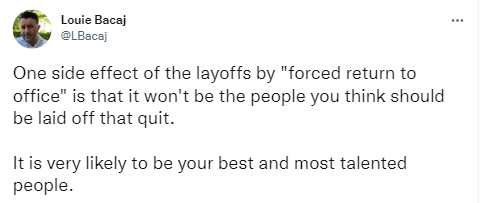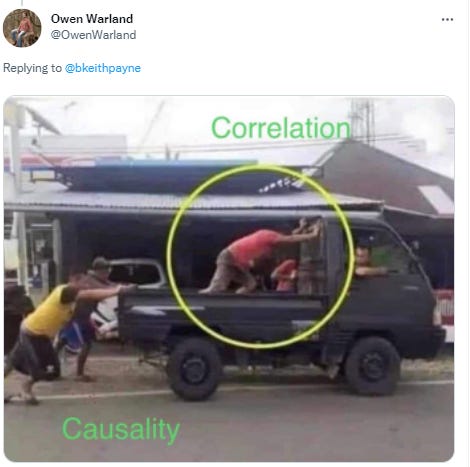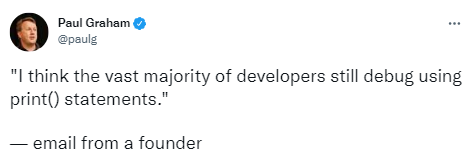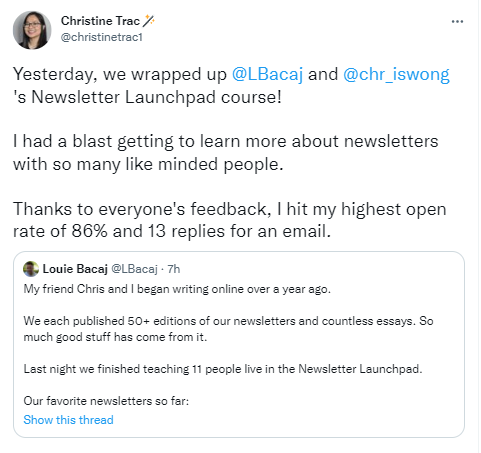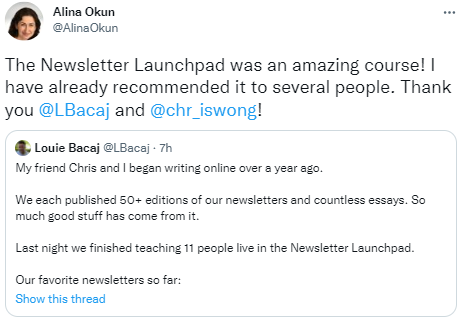M&Ms 58: The Last Mile is the Hardest
Hey Team,
An engineer reached out to me today for some career advice. We had a nice enough back and forth. But things started going south fast toward the end of the call.
I gave him some advice then at the end, I encouraged him to reach out to someone who is an incredible writer that I thought could help him. To which he responded, "Why? I am interested in coding, not writing."
You see, team, nothing grinds my gears and sets me off more than that mindset.
I proceeded to stay over on that call for an extra 40 minutes. So I can explain exactly why I think it's so important for engineers to get out of the bubble of just coding. And getting out of the bubble of your own field does not just apply to engineers, it applies to everyone.
To convey why I think this is so important, I explained to my engineering friend what I refer to as last-mile problems. The last mile of the delivery in eCommerce is the hardest part; it is still the most expensive part to this day.
Amazon could send everything you order to within a couple of miles of your home for 20% of the cost and effort. That's because they could send things in bulk to one of their warehouses close by. But delivering from that warehouse to your home makes up for the other roughly 80% of additional cost and effort. Of course these percentages vary a little bit, but they are pretty close to accurate at other large eCommerce platforms I have worked at. Amazon has invested billions in trying and bringing that cost down, and will probably invest even more, but it is still the most expensive part even for them, and it will always be.
The last-mile delivery in eCommerce follows a Pareto curve, also known as the 80-20 rule. There are a ton of things that follow this same Pareto curve.
Building up any meaningfully hard skill will follow this curve; for example, you could learn to play the violin in three years by regularly practicing, getting to roughly 80% competency. And at the same time, you could spend your entire life mastering the last 20% of that skill. Another example from personal experience is that I spent a year at the gym, got into great shape, and managed to bench press 225 pounds in my early 20s. But then I spent almost a decade working out and did not get to bench my dream weight of 405 pounds. I only ever got up to 335 pounds after years and years of working out.
It wouldn't have mattered if, in that first year, I went to the gym for 12 hours a day or 1 hour a day; I would not have been able to bench 405 any faster.
That last mile of any skill will always be the hardest. We could spend a lifetime building that up. After we conquer 80% of that skill, there are massive diminishing returns. The last mile problems, of course, do not mean that some things are not worth mastering, just that we will never get to master everything; if we are lucky to master one thing, we are ahead of the vast majority of people in this world.
And so I told my engineering friend that he could spend 20 hours a day coding, and he wouldn't be much better than someone who spent 8 hours a day. But he could spend an hour a day for a year writing and could become better at writing than the vast majority of engineers out there. And given he was so concerned with getting ahead faster than his peers, the most obvious way to get ahead is not to try and optimize something that has massive diminishing returns as fast as possible but to layer on other things he could master with a little effort.
You see, an engineer who can write great code is awesome, but an engineer who could write great code and can communicate and sell their ideas has super powers.
The Best Three Tweets I ran into this week:
For me, nothing displays the power of skill building like many of the people that lived during the renaissance, of which Leonardo DaVinci is one of the most famous.
But even Leonardo was not able to move any faster at any one skill, just that he made the decision to master many at once.
I dislike that this Tweet by Nick is so true but it is.
So much of our hang-ups in this life are in our own heads. So much of my own around getting started publishing online regularly were in my head.
Until this week I refrained from posting regularly on LinkedIn because I thought, "What will my former collogues and friends think?"
But guess what, I am over that now. This week was the first week I posted regularly on LinkedIn, and I don't have a huge following there but the numbers have been incredible so far.
As of right now, here is what this week on there looked like:
So I tell you, my friends on this newsletter, get over those mental hang-ups and become what you are mean to be.
One Article I Loved This Week:
This article is a little old, but my friend Daniel Nguyen pointed me to it as one of the best examples of what is about to happen to companies that are using "forced return to office" to lay people off.
Two Memes I Loved This Week:
We've all made this mistake.
I am not certain this was meant as a Meme at all but I can relate to it.
Some quick updates from me:
Last night we finished our live course, The Newsletter Launchpad, our three and a half week live course where we taught 11 people how to start and improve their newsletters.
I was so nervous before we started teaching this, but it turned out to be so much fun, and it seems like the folks that took it had just as much fun as we did.
My friend Chris Wong and I will begin sharing tips from our course every week, free, on how you can start and succeed with newsletters.
Don't miss our unconventional advice starting tomorrow.
Thank you for reading. I hope you have a wonderful weekend.
Louie
P.S. you can respond directly to this email and I will do my best to reply. I'd love to hear from you.






